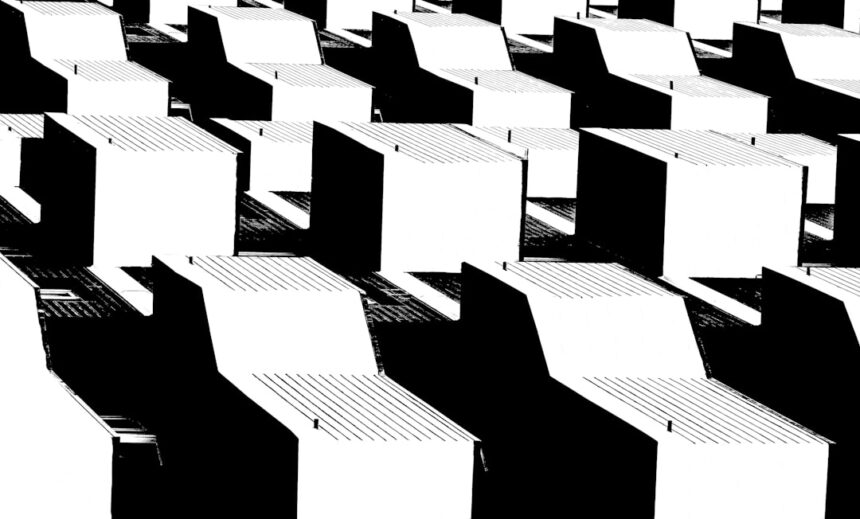Depersonalization and derealization are complex psychological phenomena that can leave you feeling disconnected from yourself and the world around you. These experiences often occur as a response to overwhelming stress or trauma, leading to a sense of detachment from your thoughts, feelings, or sense of identity. When you experience depersonalization, you may feel as though you are observing yourself from outside your body, as if you are a spectator in your own life.
This can be disorienting and frightening, making it difficult to engage fully with your surroundings or even recognize your own emotions. On the other hand, derealization involves a sense of unreality regarding your environment. You might perceive the world as foggy, dreamlike, or distorted, making it challenging to connect with people or places that once felt familiar.
Both depersonalization and derealization can occur independently or together, often as part of a broader anxiety disorder or trauma-related condition. Understanding these experiences is crucial for recognizing their impact on your mental health and seeking appropriate support.
Key Takeaways
- Depersonalization is a feeling of being disconnected from oneself, while derealization is a feeling of being disconnected from the world around you.
- Symptoms of depersonalization include feeling like an outside observer of your thoughts and actions, feeling like you’re in a dream, and feeling emotionally numb.
- Symptoms of derealization include feeling like the world is distorted or unreal, feeling like time is passing slowly, and feeling detached from your surroundings.
- Physical signs of depersonalization and derealization may include dizziness, blurred vision, and changes in body perception.
- Emotional signs of depersonalization and derealization may include anxiety, panic, and a sense of impending doom.
Symptoms of Depersonalization
When you experience depersonalization, the symptoms can manifest in various ways, often leading to confusion and distress.
You might find yourself questioning whether you are real or if you are merely an observer in your own life.
This sensation can be accompanied by a sense of emotional numbness, where you struggle to feel joy, sadness, or any other emotions that typically define your experiences. Additionally, you may notice changes in your perception of time. Moments may feel elongated or compressed, making it difficult to gauge how long you’ve been engaged in an activity.
This distortion can lead to frustration and anxiety, as you grapple with the feeling that time is slipping away from you. Recognizing these symptoms is essential for understanding how depersonalization affects your daily life and emotional well-being.
Symptoms of Derealization

Derealization symptoms can be equally disconcerting, often leaving you feeling as though the world around you is not quite real. You might experience visual distortions, such as objects appearing larger or smaller than they actually are, or colors seeming muted and washed out. This altered perception can create a sense of alienation from your environment, making it challenging to engage with others or feel grounded in reality.
Another common symptom of derealization is the sensation that people around you are unfamiliar or robotic. You may struggle to connect with friends and family members, feeling as though they are mere figures in a play rather than real individuals with whom you share meaningful relationships. This disconnection can lead to feelings of loneliness and isolation, further exacerbating the challenges associated with derealization.
Physical Signs of Depersonalization and Derealization
| Physical Signs of Depersonalization and Derealization |
|---|
| Feeling detached from one’s body or thoughts |
| Feeling like an outside observer of one’s thoughts or body |
| Feeling like the world is unreal or distorted |
| Experiencing a sense of emotional numbness |
| Feeling like time is distorted or slowed down |
While depersonalization and derealization are primarily psychological experiences, they can also manifest through physical signs that may be noticeable to you or those around you. For instance, you might find yourself exhibiting tense body language or fidgeting more than usual as a response to the anxiety that accompanies these experiences. Your heart rate may increase, and you might feel a sense of restlessness that makes it difficult to sit still or concentrate.
Additionally, some individuals report experiencing physical sensations such as tingling or numbness in their extremities during episodes of depersonalization or derealization. These sensations can be alarming and may contribute to feelings of panic or fear. Recognizing these physical signs is important for understanding how deeply intertwined your mind and body can be during episodes of disconnection.
Emotional Signs of Depersonalization and Derealization
The emotional toll of depersonalization and derealization can be profound. You may find yourself grappling with feelings of anxiety, fear, or sadness as you navigate these disorienting experiences. The emotional numbness that often accompanies depersonalization can leave you feeling empty or hollow, making it difficult to connect with the things that once brought you joy.
Moreover, feelings of frustration and helplessness may arise as you struggle to articulate your experiences to others. You might feel misunderstood or dismissed when trying to explain what you’re going through, leading to further isolation. Acknowledging these emotional signs is crucial for fostering self-compassion and understanding as you work through the challenges associated with depersonalization and derealization.
Cognitive Signs of Depersonalization and Derealization

Cognitive signs of depersonalization and derealization can significantly impact your ability to think clearly and make decisions. You may experience memory lapses or difficulty concentrating on tasks that once felt straightforward. This cognitive fog can lead to frustration as you grapple with the inability to focus on conversations or complete daily responsibilities.
Additionally, intrusive thoughts may become more prevalent during episodes of depersonalization or derealization. You might find yourself ruminating on negative experiences or fears, which can exacerbate feelings of anxiety and disconnection. Recognizing these cognitive signs is essential for understanding how they contribute to the overall experience of depersonalization and derealization.
Behavioral Signs of Depersonalization and Derealization
Behaviorally, depersonalization and derealization can lead to changes in how you interact with the world around you. You may withdraw from social situations or avoid activities that once brought you joy due to the overwhelming nature of these experiences. This withdrawal can create a cycle of isolation that further exacerbates feelings of loneliness and disconnection.
You might also notice changes in your daily routines or habits. For instance, you may find it challenging to maintain personal hygiene or complete household tasks due to the overwhelming nature of your symptoms. These behavioral signs can serve as indicators of how deeply depersonalization and derealization affect your overall quality of life.
Triggers for Depersonalization and Derealization
Identifying triggers for depersonalization and derealization is crucial for managing these experiences effectively. Common triggers include high-stress situations, traumatic events, or significant life changes that leave you feeling overwhelmed. For instance, experiencing a major loss or undergoing a significant transition can prompt feelings of disconnection as your mind attempts to cope with the emotional weight of the situation.
Additionally, certain environments or situations may exacerbate feelings of depersonalization or derealization. Crowded places, loud noises, or chaotic settings can heighten anxiety levels, leading to an increased likelihood of experiencing these symptoms. By recognizing your triggers, you can take proactive steps to minimize exposure to situations that may lead to episodes of disconnection.
Impact on Daily Life
The impact of depersonalization and derealization on daily life can be profound and far-reaching. You may find it challenging to maintain relationships with friends and family members due to feelings of disconnection and isolation. Social gatherings that once felt enjoyable may become overwhelming, leading you to withdraw from activities that foster connection.
Moreover, your ability to perform at work or school may be compromised as cognitive signs interfere with concentration and productivity. Tasks that once felt manageable may become daunting when faced with the foggy thinking associated with these experiences. Understanding the impact on daily life is essential for recognizing the need for support and intervention.
Seeking Help for Depersonalization and Derealization
If you find yourself struggling with depersonalization and derealization, seeking help is a vital step toward regaining control over your mental health. Mental health professionals can provide valuable insights into your experiences and offer therapeutic approaches tailored to your needs. Therapy options such as cognitive-behavioral therapy (CBT) have shown promise in helping individuals manage symptoms by addressing negative thought patterns and developing coping strategies.
Additionally, support groups can provide a sense of community and understanding as you connect with others who share similar experiences. Sharing your journey with those who truly understand can alleviate feelings of isolation and foster a sense of belonging. Remember that seeking help is not a sign of weakness; rather, it is an empowering step toward healing.
Coping Strategies for Depersonalization and Derealization
Implementing coping strategies can significantly enhance your ability to manage depersonalization and derealization effectively. Mindfulness practices such as meditation or deep breathing exercises can help ground you in the present moment, reducing feelings of disconnection. Engaging in physical activities like yoga or walking can also promote a sense of connection between your mind and body.
Establishing a routine that includes self-care activities is essential for maintaining emotional well-being. Prioritizing sleep, nutrition, and social connections can create a supportive foundation for managing symptoms effectively. Additionally, journaling about your experiences can provide an outlet for processing emotions and gaining insights into triggers.
In conclusion, understanding depersonalization and derealization is crucial for navigating these complex experiences effectively. By recognizing symptoms across emotional, cognitive, physical, and behavioral domains, you can gain insight into how these phenomena impact your daily life. Seeking help from mental health professionals and implementing coping strategies can empower you on your journey toward healing and reconnection with yourself and the world around you.
Depersonalization-derealization disorder is a complex mental health condition characterized by persistent feelings of detachment from one’s body or surroundings, often described as feeling like an outside observer of one’s life. Individuals experiencing these symptoms may feel as though they are living in a dream or that the world around them is unreal. For those seeking more information on the signs and symptoms of depersonalization-derealization, an insightful article can be found on the Unplugged Psychology website. This resource delves into the nuances of the disorder and offers guidance on recognizing its manifestations. For further reading, you can visit the article by clicking on this




